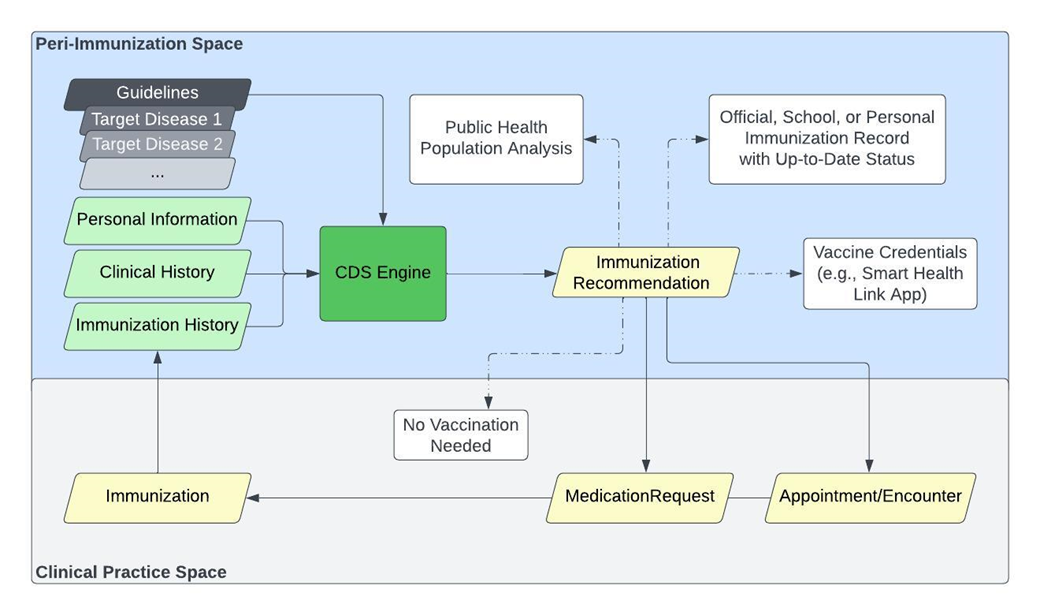Immunization Incubator Implementation Guide, published by HL7 International / Public Health. This guide is not an authorized publication; it is the continuous build for version 0.1.0 built by the FHIR (HL7® FHIR® Standard) CI Build. This version is based on the current content of https://github.com/HL7/immunization-incubator/ and changes regularly. See the Directory of published versions
| Page standards status: Informative |
An immunization forecast is a point-in-time representation of an individual's data compared against a set of guidelines designed by healthcare professionals to protect individuals against a wide range of vaccine preventable diseases. These sets of guidelines go by various names in different locales, but for the sake of what follows, they will be referred to as a "schedule". Schedules are often age-based but can also contain recommendations based on other information about the patient including things like allergies, underlying medical conditions, prescribed medications, personal behaviors and other attributes. For example, in the United States, all infants are recommended to receive their first dose of the polio vaccine by 2 months of age while healthcare professionals are recommended to be vaccinated against Hepatitis B if they are routinely exposed to blood products. Documented within the schedule for a given vaccine preventable disease, one or more “series” may be defined. A series is a set of one or more recommended vaccinations that is intended to produce immunity in the vaccinated individual. Examples of series include the standard 2-dose MMR series to protect against measles, mumps and rubella or the 3-dose HepA/HepB series to protect against Hepatitis A and B.
The comparison of an individual's data against a schedule includes an evaluation of each prior dose of vaccine against the guidelines set forth in the schedule. The outcome of this evaluation is either the validation of the prior dose (that is, the dose is "valid" and advances the individual on the path to immunity) or the determination that the prior dose was "invalid" for some reason and cannot count towards meeting the guidelines in the schedule. The evaluation outcome for a given dose of vaccine can be expressed in the ImmunizationEvaluation resource.
An individualized immunization forecast is typically the product of a clinical decision support (CDS) engine which takes the individual's data and a machine computable schedule as inputs to evaluate the patient's current immunization status and forecast future needs. Note that an immunization forecat may also indicate that further vaccination is not required for a given target disease if the individual has completed their path to immunity. A comparison of the individual's data against different guidelines may result in a different set of recommendations. Also note that schedules themselves may evolve over time potentially resulting in new recommendations for a given individual. As noted in the figure below, a set of individualized immunization recommendations may then be used for a variety of purposes. Perhaps the most obvious usage is as the basis for a healthcare provider to develop and implement a plan to vaccinate the individual. However, other usages are possible including as a basis for vaccine credentialling, meeting school admission requirements, and performing public health activities. The immunization forecast can be expressed in the ImmunizationRecommendation resource. Because the recommendations for an individual can change over time, the data contained in an ImmunizationRecommendation resource is expected to be the basis for clinical action for only a short period of time.
